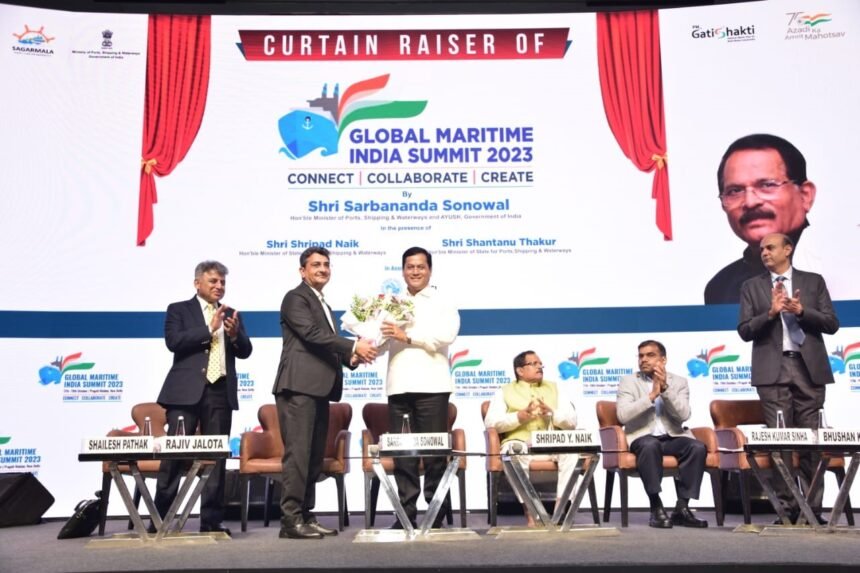The upcoming Global Maritime India Summit 3.0, scheduled for October, is set to be a groundbreaking event that will delve into crucial aspects of the maritime sector, aiming to foster growth, sustainability, and international cooperation. Union Minister Sarbananda Sonowal revealed that this year’s summit will focus on a diverse range of areas, including ports of the future, decarbonization, coastal shipping, and inland waterways transportation. With proactive government policies propelling the sector forward, the maritime industry in India is poised for unprecedented growth and stands as a beacon of hope for a greener and more efficient future.
The curtain-raiser event for the three-day summit saw Sonowal express his enthusiasm for the promising future of the maritime sector in India. Notably, he highlighted the crucial role of government policies in facilitating progress in areas such as ports, shipping, and inland waterways. With a keen eye on fostering sustainable development, the summit aims to create a collaborative platform for experts, stakeholders, and policymakers from around the world.
One of the primary areas of focus at the summit will be “Ports of the Future.” As global trade continues to expand, ports play a pivotal role in facilitating seamless trade and economic growth. Discussions will center on adopting cutting-edge technologies and embracing digitalization to enhance port infrastructure, operational efficiency, and security. Additionally, with sustainability at the forefront, eco-friendly practices and renewable energy solutions will take center stage.
Decarbonization is another critical theme that will be addressed at the summit. Recognizing the urgent need to combat climate change, the maritime industry is under increasing pressure to reduce its carbon footprint. The summit will serve as a platform to explore innovative technologies, such as alternative fuels and propulsion systems, to achieve decarbonization goals while maintaining economic viability.
Coastal shipping will also be a key point of discussion. Coastal routes offer a cost-effective and eco-friendly alternative to overland transportation for cargo movement within the country. Emphasizing coastal shipping’s potential will encourage investment in modernizing coastal infrastructure, boosting domestic trade, and minimizing road congestion and emissions.
Furthermore, the summit will shed light on inland waterways transportation, which holds immense untapped potential for India’s economic growth. Leveraging inland waterways can provide a sustainable and efficient means of cargo transportation, especially for bulk commodities and industrial goods. By developing waterways as viable transportation corridors, India can unlock new trade routes and reduce the burden on congested roads and railways.
In collaboration with the Federation of Indian Chambers of Commerce and Industry (Ficci), the summit aims to foster international cooperation and partnerships. An estimated 50 countries are expected to participate, facilitating knowledge sharing, technology transfer, and the exploration of global best practices. By engaging with diverse stakeholders, India seeks to strengthen its position in the global maritime landscape and forge alliances that drive innovation and sustainable growth.
The Global Maritime India Summit 3.0 comes at a pivotal time, offering a unique opportunity to shape the future of India’s maritime sector. As the nation embraces forward-looking policies and invests in cutting-edge technologies, the event promises to chart a sustainable course that benefits not only India but also the international maritime community. With its focus on ports of the future, decarbonization, coastal shipping, and inland waterways transportation, the summit is poised to become a transformative platform for progress, prosperity, and environmental stewardship on a global scale. As participants gather in the national capital in October, the world will be watching, anticipating a new era of sustainable maritime development.









